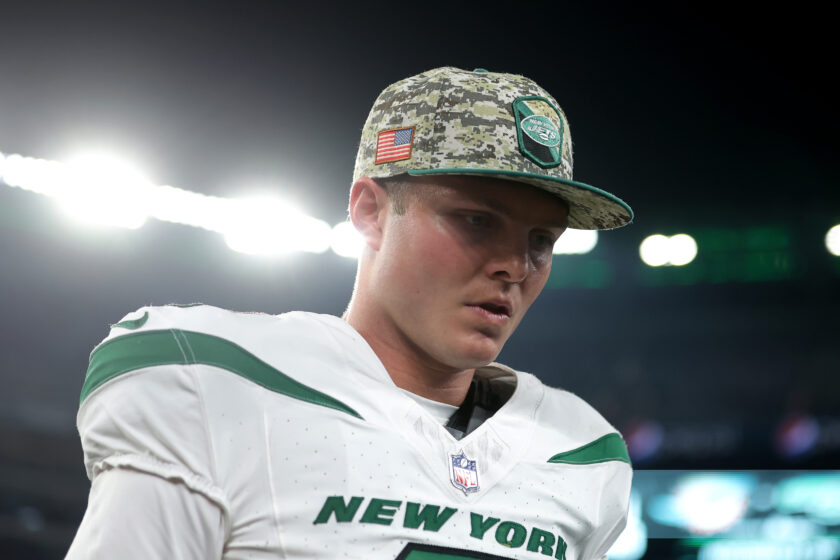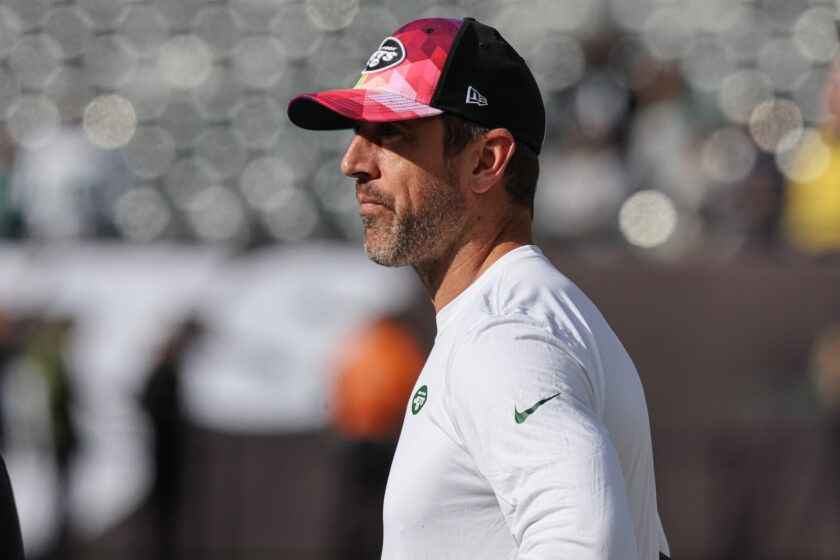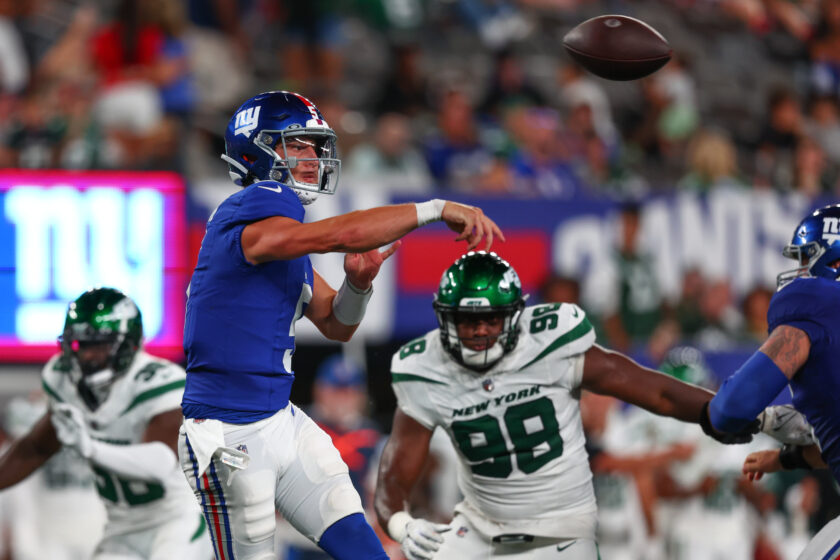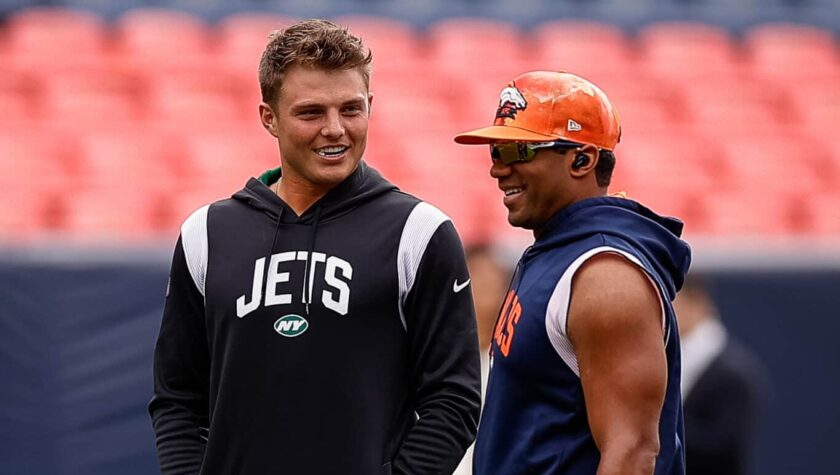The New York Jets just improved their defense by drafting Braden Mann
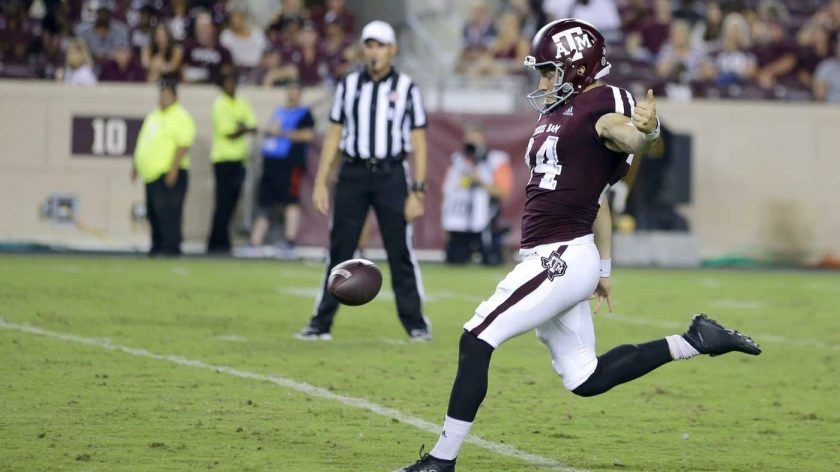
The New York Jets lost the field position battle in 2019, and it cost them some games. With Braden Mann in green that shouldn’t happen again.
[sc name=”kyle-newman-banner” ]When the New York Jets selected a punter in the sixth round, they were met with one of two responses. Either fans were ecstatic to acquire an elite punter prospect or they were upset the Jets would waste a draft pick on a specialist.
Before diving into whether or not punting matters and the role it plays in the modern game, it’s important to note how a sixth-round pick actually works out. The odds of finding a starting-caliber player in the sixth round are nearly non-existent.
It’s rare for there to be even one starting-caliber player drafted in the sixth round in any draft class. So why wouldn’t the Jets take a punter instead of rolling the dice on a player who is likely to be cut before his rookie deal is up?
It’s true that specialists can be found as undrafted free agents or just in free agency in general, but those come with their own risks. Free agents are older and will usually cost millions of dollars more than a sixth-round pick.
As for undrafted players, they only get a three-year contract instead of the four-year contract for rookies who are drafted. That means a team would be giving up an extra year of control so they could draft a player who will make less of an impact. That doesn’t even mention that a player like Braden Mann likely would have been drafted by someone else. Mann was the first of two punters drafted, along with Sterling Hofrichter. Why would a team pass on a great prospect on a good deal for a lesser prospect on a worse deal? It just doesn’t make sense from a football or business standpoint.
The selection of Mann itself was a value selection. It’s very unlikely any sixth-round pick will have a larger impact then Mann will. Only two questions really matter: What kind of impact do punters have on games in the modern NFL? Is Braden Mann the kind of punter who can make an impact on Sundays?
Does punting matter?
Punting doesn’t matter for most teams. Teams who have average punting won’t notice the game changed by their punter. However, teams who have poor punting feel it. The Jets felt that burn in 2019.
They were fourth in punt coverage DVOA in 2019, but there was a reason for it. Lac Edwards was the master of hangtime, but the power was lacking. Edwards was also one of the worst punters in the NFL at pinning opponents inside the 20. In short, the punting game was lacking in a major way.
The Jets had the second-worst average opponent starting field position in the league. That played a huge factor in a ton of their games because it wasted an elite defense.
Yes, the Jets defense was elite. The scoring numbers say otherwise, but the average field position is the reason why. The Jets defense allowed the fifth least yards per drive. They were better than the Bears, Ravens, Titans, and Packers.
The Jets only allowed 28.4 yards per drive. If opponents were starting at their own 25-yard line that would mean holding them out of field goal range on nearly every possession. Instead, the Jets average starting field position was the 31-yard line. That means despite elite production, the defense was getting off the field on the edge of field-goal range on average.
That’s why despite the strong defense the team was 11th in points allowed per drive. The four other teams that finished top five in yards per drive also finished top four in points per drive. The New York Jets were the lone exception.
This isn’t a coincidence. Of the top-five best scoring defenses in the NFL, only the Chicago Bears didn’t have an above-average starting field position. The Patriots, Bills, Ravens, and Vikings all finished above average. The Pats were first in both categories.
On the flip side, three of the bottom-five scoring defenses were bottom four, and a fourth was bottom seven. The Arizona Cardinals were the only exception as they finished top-10 in average starting field position.
The point here is simple. Punting doesn’t matter most of the time, but it does play a big role in how good a defense can be. It’s hard to be an elite defense without at least an average punting game, and it’s even harder to be a competent defense with an awful punting unit.
Braden Mann is a game changer
If you’re still not convinced the Jets should have spent a draft pick on a punter, then this should change your mind. Braden Mann is arguably the best punter prospect to hit the NFL since Shane Lechler, they even went to the same college.
Mann won the Ray Guy award in 2018, awarded to the best punter in college football. It was a thoroughly deserved award after Mann set nearly every punting record the NCAA has. He had 14 punts of 60-plus yards—the most in NCAA history—set the NCAA punting average in a single-game record with 60.8 yards on five punts against Alabama, and set the NCAA record for average punt distance over a season at 51 yards per punt.
To put that in perspective, Mann’s 51 yards per punt would have ranked first in the NFL by almost two yards. His 44.7 net yards per punt would have been third in the NFL. The only weakness in his game was his directional punter. Only 38% of his punts pinned opponents inside the 20, which would have ranked 17th.
He made adjustments in 2019. They led to declines in many of his numbers overall, but he was still elite. He was First-Team All-SEC with his impressive 47.1 yards per punt, 40.5 net yards per punt, and his 45.6% of punts pinned inside the 20. Those would have ranked sixth, 28th, and seventh respectively.
Mann has a cannon for a leg and his coffin kicking abilities are impressive. He could walk onto an NFL field as one of the best punters in the league, but he has one weakness. Mann doesn’t have the best hangtime, and it leads to return opportunities.
His punt average was historically different compared to his net average. in 2018 it was a 6.3 yards difference and in 2019 it was 6.6 yards. The biggest difference in the NFL in 2019 was 7.3 yards by Michael Palardy of the Carolina Panthers. As mentioned above the Panthers punting game was a nightmare in 2019.
The big difference between Mann and Palardy is that Mann has the ability to pin opponents deep. Even at a measly 38%, Mann was still significantly better than Palardy’s 33% in 2019.
There’s also the fact that Mann didn’t have the best gunners. It’s a common theme in college that usually forces college punters to focus on hangtime rather than booming kicks. That won’t stay the same in the NFL.
A quick look at the Jets roster shows they have speed on their special teams. Trenton Cannon has become one of the league’s better gunners since taking over the role in 2018 and he’s aided by his 4.3 speed. He was flanked by Jeff Smith, when healthy, in 2019. Smith ran a 4.34 at the combine in 2019.
The Jets have also reportedly agreed to terms with undrafted free agent Javelin Guidry who is known for his blazing speed having run a 4.29.
It would be near impossible for Mann to outkick a coverage unit as fast as the one the Jets have put together. In other words, Mann will be able to use his leg to his fullest at the next level.
That should make him a game-changer. Having a punter with the ability to flip the field and put his defense in a position to succeed provides a tone of value. Mann can not only be that guy, but he has the potential to be the best punter in the NFL.
It’s hard to find a better way for the New York Jets to spend a sixth-round pick. Mann has the potential to be a game-changer for the defense. If that’s not worth a six-round pick then what is?
A contributor here at elitesportsny.com. I'm a former graduate student at Loyola University Chicago here I earned my MA in History. I'm an avid Mets, Jets, Knicks, and Rangers fan. I am also a prodigious prospect nerd and do in-depth statistical analysis.



